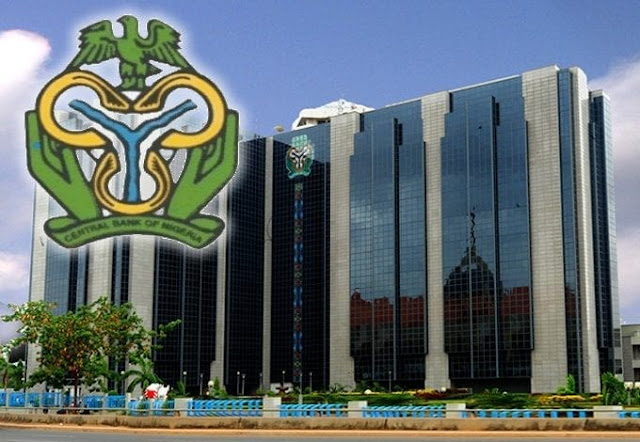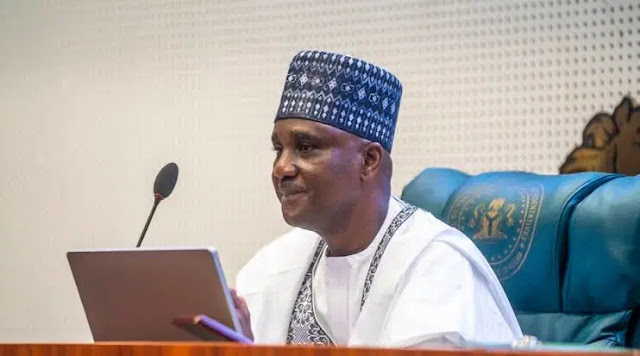In a bold and unequivocal statement that has ignited fervent discussions across Nigeria’s political landscape, Gbadebo Rhodes-Vivour, the Labour Party’s gubernatorial candidate in the 2023 Lagos State election, declared on September 7, 2025, that he would rather abandon his political career than align with President Bola Ahmed Tinubu. The announcement, made during a public engagement, underscores Rhodes-Vivour’s steadfast commitment to his principles and highlights the deep-seated ideological divides shaping Nigeria’s political arena as the nation approaches another election cycle.
A Rising Star in Nigerian Politics
Gbadebo Rhodes-Vivour, often referred to as GRV, has emerged as a prominent figure in Nigeria’s political sphere, particularly among younger voters and those disillusioned with the country’s entrenched political class. A Lagos native with a background in architecture and urban planning, Rhodes-Vivour entered politics with a vision to transform Nigeria’s economic hub into a model of progressive governance. His 2023 gubernatorial campaign under the Labour Party banner captured national attention, as he positioned himself as a fresh alternative to the status quo, challenging the dominance of the All Progressives Congress (APC) in Lagos State.
Rhodes-Vivour’s campaign was fueled by the momentum of the 2022-2023 #EndSARS protests and the broader “Obidient” movement, which rallied behind Labour Party presidential candidate Peter Obi. With a platform centered on transparency, youth empowerment, and sustainable development, GRV galvanized a significant portion of Lagos’ electorate, particularly in urban areas. Despite officially coming second to incumbent Governor Babajide Sanwo-Olu in the 2023 election, allegations of electoral irregularities and voter suppression marred the process, fueling Rhodes-Vivour’s resolve to remain a vocal critic of the APC and its leadership.
His latest declaration—rejecting any possibility of aligning with President Tinubu, a towering figure in Lagos and Nigerian politics—has further cemented his reputation as a principled politician unafraid to challenge the establishment. The statement reflects not only his personal stance but also the broader tensions between Nigeria’s old guard and a new generation of leaders vying for influence.
The Context of Rhodes-Vivour’s Statement
Rhodes-Vivour’s remarks come at a time of heightened political maneuvering in Nigeria, as parties and politicians position themselves ahead of the 2027 general elections. President Tinubu, who assumed office in May 2023, has faced intense scrutiny over his administration’s economic policies, including the removal of fuel subsidies and the floating of the naira, which have led to soaring inflation and widespread hardship. While Tinubu’s supporters argue that these reforms are necessary for long-term economic stability, critics, including Rhodes-Vivour, contend that they have exacerbated poverty and inequality, particularly in urban centers like Lagos.
As the leader of the APC and a political godfather in Lagos, Tinubu has long wielded significant influence over the state’s governance. His political machine, often referred to as the “Lagos APC dynasty,” has controlled the state since 1999, producing successive governors and shaping its political trajectory. Rhodes-Vivour’s emergence as a formidable challenger in 2023 threatened this dominance, making his refusal to align with Tinubu a significant statement of defiance.
In his speech, Rhodes-Vivour emphasized that his political philosophy—rooted in social justice, accountability, and inclusive governance—is fundamentally at odds with Tinubu’s approach. He accused the APC of perpetuating a system that prioritizes elite interests over the needs of ordinary Nigerians, particularly the youth. “I’d rather quit politics entirely than compromise my values by aligning with Tinubu,” he declared, prompting applause from his supporters and sparking debates on social media platforms like X.
The Ideological Divide
Rhodes-Vivour’s statement highlights a deeper ideological divide in Nigerian politics, one that pits progressive, youth-driven movements against the entrenched power structures of the APC and the People’s Democratic Party (PDP). For decades, Nigeria’s political landscape has been dominated by a small group of influential figures, often referred to as “godfathers,” who wield significant control over party nominations and electoral outcomes. Tinubu, a former governor of Lagos State (1999-2007) and a key architect of the APC’s rise to power, is widely regarded as one of the most powerful of these figures.
In contrast, Rhodes-Vivour represents a new wave of Nigerian politicians who draw inspiration from global movements for change and seek to disrupt the status quo. His campaign in 2023 focused on issues like affordable housing, improved public transportation, and equitable access to education and healthcare—priorities that resonate with Lagos’ burgeoning youth population. By rejecting any alliance with Tinubu, Rhodes-Vivour is signaling his commitment to this vision, even at the cost of his political career.
The statement also reflects the growing polarization in Nigerian politics, particularly in Lagos, which remains a microcosm of the country’s broader challenges. As Nigeria’s commercial capital, Lagos is a battleground for competing visions of governance. The APC’s dominance has been built on a combination of patronage, strategic alliances, and control over state resources, while challengers like Rhodes-Vivour advocate for a more transparent and inclusive model. The tension between these approaches is likely to intensify as the 2027 elections draw closer.
Implications for Rhodes-Vivour’s Political Future
Rhodes-Vivour’s declaration raises important questions about his political trajectory. By publicly ruling out any alliance with Tinubu, he has positioned himself as a steadfast opponent of the APC’s dominance in Lagos. This stance could further endear him to his base, particularly among young voters and those frustrated with the current system. However, it also carries risks. The APC’s influence in Lagos is formidable, and crossing Tinubu, a master strategist with a vast political network, could limit Rhodes-Vivour’s access to resources and political opportunities.
Quitting politics, as Rhodes-Vivour suggested he might do, would be a significant loss for the Labour Party and its supporters. Since the 2023 elections, GRV has emerged as one of the party’s most recognizable figures, alongside Peter Obi. His charisma, eloquence, and ability to connect with younger voters have made him a valuable asset in the Labour Party’s quest to challenge the APC and PDP nationally. If he were to exit politics, it could weaken the party’s position in Lagos, where it made significant inroads in 2023.
However, Rhodes-Vivour’s statement may also be a calculated move to solidify his brand as a principled leader. In a political landscape often criticized for its opportunism and lack of ideological clarity, GRV’s refusal to compromise could enhance his credibility and attract more supporters to his cause. Whether he remains in politics or not, his defiance of Tinubu is likely to resonate with those who see him as a symbol of resistance against Nigeria’s entrenched political elite.
The Broader Political Landscape
Rhodes-Vivour’s remarks also have implications for Nigeria’s broader political dynamics. The Labour Party’s rise in 2023, driven by Peter Obi’s presidential campaign and the #EndSARS movement, signaled a shift in the country’s political consciousness. For the first time in decades, a third force emerged as a credible alternative to the APC and PDP, particularly among younger voters. Rhodes-Vivour’s refusal to align with Tinubu reinforces the Labour Party’s narrative as a party of principle, distinct from the traditional power brokers.
At the same time, Tinubu’s administration faces mounting challenges. Economic difficulties, including rising fuel prices and unemployment, have fueled public discontent, particularly in urban areas. The APC’s grip on Lagos, while still strong, showed signs of vulnerability in 2023, with the Labour Party winning several legislative seats and performing strongly in the presidential election. Rhodes-Vivour’s defiance could inspire other opposition figures to challenge the APC’s dominance, potentially weakening Tinubu’s influence in his political stronghold.
The statement also underscores the generational shift in Nigerian politics. With over 60% of Nigeria’s population under the age of 30, young leaders like Rhodes-Vivour are increasingly shaping the national conversation. Their focus on issues like technology, innovation, and social justice contrasts sharply with the traditional patronage-based politics of the older generation. As the 2027 elections approach, this generational divide is likely to play a central role in determining Nigeria’s political future.
Reactions and Public Discourse
Rhodes-Vivour’s declaration has sparked a lively debate across Nigeria, particularly on social media platforms like X, where users have expressed a range of opinions. Supporters of GRV have praised his courage and commitment to principle, with many describing him as a beacon of hope for a new Nigeria. “GRV is standing up to the godfathers. This is what we need—leaders who put the people first,” one user posted. Others, however, have questioned the wisdom of his stance, arguing that alienating Tinubu could limit his political prospects in a system where alliances are often necessary for success.
Political analysts have also weighed in, with some viewing Rhodes-Vivour’s statement as a strategic move to rally his base ahead of future elections. “GRV is playing to his audience—young, urban voters who want change,” said Dr. Chidi Okonkwo, a political commentator based in Lagos. “But he must be careful. Tinubu’s influence in Lagos is immense, and taking him on directly is a high-stakes gamble.”
The APC, for its part, has yet to respond officially to Rhodes-Vivour’s remarks. However, sources within the party suggest that Tinubu and his allies are unlikely to take the statement lightly. The APC’s dominance in Lagos has been challenged before, but Tinubu’s ability to consolidate power and neutralize opponents has been a hallmark of his political career. Whether Rhodes-Vivour’s defiance will prompt a reaction from the APC remains to be seen, but it is likely to intensify the rivalry between the two camps.
The Road Ahead
As Nigeria navigates a critical juncture in its political history, Gbadebo Rhodes-Vivour’s refusal to align with President Tinubu represents a defining moment. For GRV, the decision reaffirms his commitment to a vision of politics that prioritizes the needs of ordinary Nigerians over personal gain. It also underscores the challenges faced by those seeking to disrupt Nigeria’s entrenched power structures.
For the Labour Party, Rhodes-Vivour’s stance strengthens its position as a credible alternative to the APC and PDP, particularly in Lagos. However, the party must continue to build grassroots support and address the logistical and financial challenges of competing against well-funded opponents. The 2027 elections will be a crucial test of the Labour Party’s staying power and its ability to translate its 2023 momentum into lasting success.
For President Tinubu and the APC, Rhodes-Vivour’s defiance is a reminder of the growing discontent among Nigeria’s youth and urban voters. While Tinubu’s influence remains formidable, the rise of figures like GRV suggests that the APC’s dominance is not unassailable. The party will need to address the concerns of younger voters and demonstrate that it can deliver on its promises of economic reform and development.
Conclusion
Gbadebo Rhodes-Vivour’s declaration that he would rather quit politics than align with President Tinubu is more than a personal stance—it is a reflection of the broader struggle for Nigeria’s political soul. As the country grapples with economic challenges, social unrest, and a growing demand for change, leaders like GRV are at the forefront of a movement to redefine what it means to govern. Whether he remains in politics or chooses to step away, his bold stand against one of Nigeria’s most powerful figures will resonate with those who believe in a different future for the nation.
As the 2027 elections loom, Rhodes-Vivour’s words serve as a rallying cry for those who seek to challenge the status quo. In a political landscape often defined by compromise and expediency, his commitment to principle is a rare and powerful statement. Whether it will lead to lasting change or become a footnote in Nigeria’s complex political history remains to be seen, but for now, Gbadebo Rhodes-Vivour has made it clear that he will not bend to the will of the establishment—not even for the sake of his own political survival.






